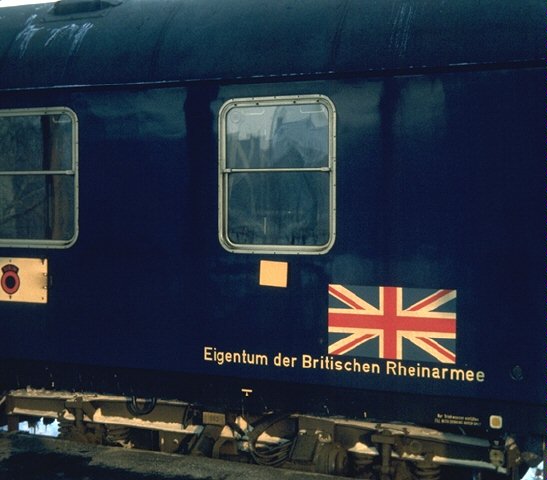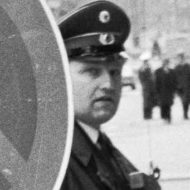by R. W. Rynerson on 10 November 1989
“I am 24 years old, and I have dreamed of this all my life!” A young East German walked through the Berlin Wall’s open gate and across our living room’s television screen, seemingly answering questions posed for an American and a British soldier 19 years ago.

Dm80671 of the Deutsche Reichsbahn, known to Americans as the British Military Train and to the “Brits” as The Berliner, slowed to a halt in the rundown Magdeburg Hauptbahnhof. This was the “union station” of the East German city halfway between West Germany and West Berlin. As an American soldier I was curious about this place, which was where our Army had halted on its World War II advance in what was to be the Soviet Zone of defeated Germany. My British acquaintance and I scanned the train window scene, making the most of our brief visit.
The station was busy with commuters at 5:44 p.m., but our halt was only for operating reasons. No one boarded or alighted from the sealed train — Military Police on board checked the door latches. Bahnpolizei watched us warily from trackside. We looked at them and then at the commuters. They looked at us, and at the Union Jack accompanying the Royal Corps of Transport logo on the sides of our car. No one spoke.
Suddenly, a little boy on the platform pointed at the Union Jack and began to frame words which we could not hear. A horrified look crossed his mother’s face, she clapped a hand over his mouth, and wheeled him around so that he faced away from us. She looked up and down the platform at her fellow travelers with nervous glances, but no one betrayed curiosity. The silence resumed.
In the coziness of our First Class compartment, both of us felt a desperate urge to say something reassuring to the woman, but what? A child’s words blurted out on a station platform should have been cute, or red-faced embarrassing. This boy had said something dangerous.
Our train moved east into the night; in five minutes we were across the Elbe and back into the comfortable routines of travel. Our World War II-vintage locomotive laid a trail of low-grade coal smoke through the worn-out village stations of the Royal Prussian Railways, and it was easy to exchange glances with villagers who must have looked at our train as a fleeting symbol of the Western world to which they had once belonged.
For a moment, however, four people from three countries were pushed into one of those hard-edged scenes of the Cold War. Since that moment, we have shared the dream that the boy of 1970 would someday walk through the Wall as a free man. The 24-year old’s comment of this week seems to have answered the questions of 19 years ago.
###
